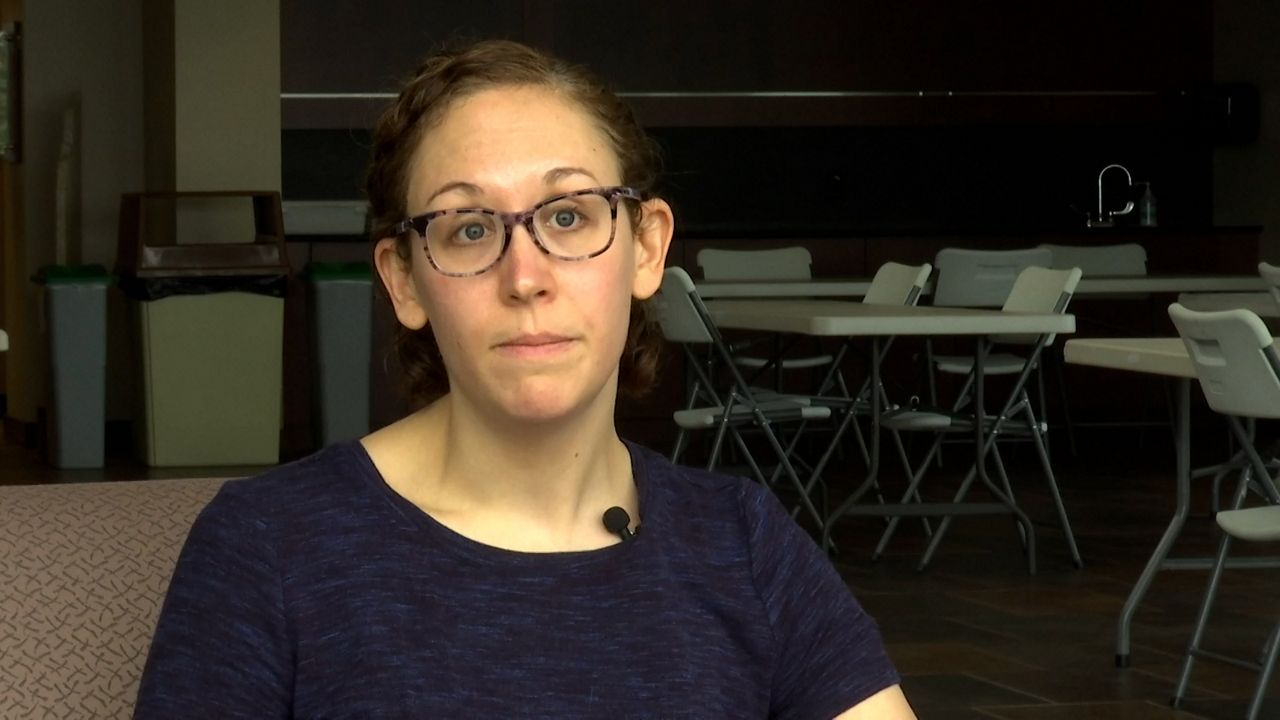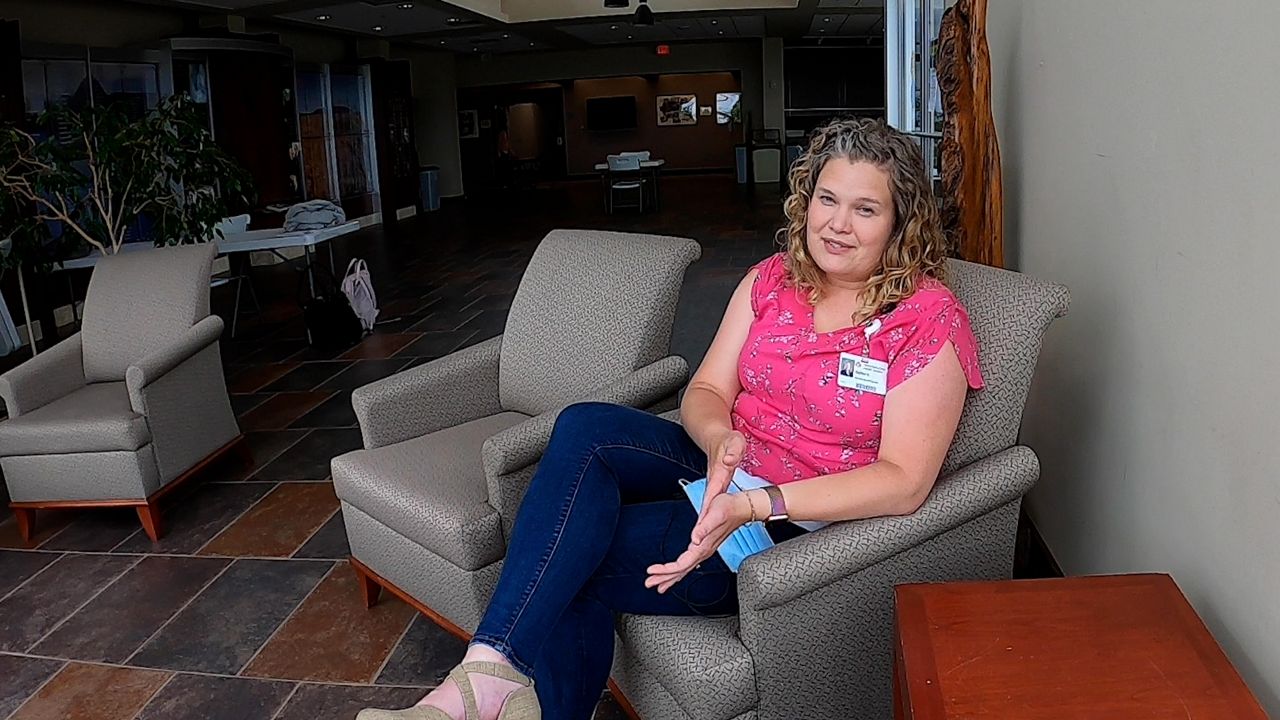This article contains information about substance abuse. If you or someone you know needs help, you can call the Wisconsin Addictaion Recovery Helpline at 211 or 833-944-4673 for free, confidential support. Wisconsin Department of Health Services has additional resources available, here.
MARSHFIELD, Wis. — The Marshfield Health System operates a Family Health Center which focuses on getting people in northern and central Wisconsin counties and reservations help combatting addiction.
“We offer the pathways that are most appropriate for the individual, we do assessments to determine what is the most appropriate level of care,” said Rachel Stankwoski, a PhD in infectious disease and project manager with the Family Health Center of Marshfield.
The Family Health Center started in 2015 with the goal to help people with opioid use disorder get access to treatment services. It has since expanded to getting people services for all substance addictions.
It serves five counties and three tribes in northern Wisconsin and four counties and one tribe in the central part of the state.
The problem is, most statewide estimates and data focus on large population centers while rural communities are under-sampled.
Because of that, the National Farm Medicine Center at the Marshfield Clinic and Research Institute is researching addiction in rural areas to better serve those communities.
“We do research with and for communities,” said Kate Barnes, project manager with the Research Insitute. “A lot of what we know about substance use is based on what we've learned form urban areas, but it makes sense that rural areas would be different than urban areas.”
What are the issues?
Barnes' research uses anthropological methods known as ethnography to gain a better understanding of substance abuse in rural communities. She does long, in-depth interviews over the course of several months.
“The goal is to immerse myself in these communities where I can learn about their lives and their issue as it's organized around substance abuse in these rural communities,” Barnes said.
She talks to them, gets to know their families, hear about what they've dealt with in coming to use sub stances and ultimately seeking help.
Barnes said her work is looking at substance abuse as a systemic issue, looking at issues like movement of jobs out of rural areas, lack of housing, and other things that can be addressed through policy.

“We want to understand what keeps people going through what is undeniably a huge challenge in their lives,” Barnes said.
Barnes said she finds a lot of issues are traced back to early life experiences. People trace the source of substance use issues in conversations with her.
“That can include experiences with their parents or trauma that they may have experienced as Native Americans or discrimination that they may have experienced as a minority in a rural area,” Barnes said.
Barnes said she's finding that homelessness and substance abuse are tied together in many ways. She said in rural areas homelessness looks like couch surfing, where people stay in a different home every night. She says usually those relationships are built around substance abuse.
Barnes said in rural areas substance abuse and homelessness are not as visible as urban areas, but the people dealing with them are no less vulnerable.
“When you're vulnerable like that you're very subject to the help that's available to you and if a lot of that help is relationships built around substance abuse,” Barnes said.
Barnes said for farmers in particular substance abuse can be a unique issue. Farmers will sometimes experience an injury or illness, but need to continue working without time off benefits available at other jobs. Because of that they'll seek out quick fixes like painkillers or other substances.
“It's a very hard position to be in to have to decide between your health and the job that makes you the money to pay for your healthcare,” Barnes said.
Barnes said her research isn't looking to establish a common path to substance abuse, but to dig into the details. Ideally this will result in the Family Health Center having more information to treat people with.
Barriers to getting help
Stankwoski said that a lot of people don't classify themselves as having a subtsance abuse problem even if they do because they don't know what is a normal use.
She said getting help is a process and people need to recognize for themselves they want help. Even with it being a self-directed process, the Center tries to reach people who need help.
“Doing that outreach and making sure that people have access to treatment when they're ready and when they want it is super important,” Stankowski said.
Because of the self-directed aspect, Stankowski said it's important to have help ready when people are reach out. She said you can miss an opportunity to help someone if help isn't ready for them when they reach out.

“Being able to strike while the iron is hot is really important and that's one of the reasons that having this kind of network of providers is really helpful for,” Stankowski said.
Because of low population densities in northern and central Wisconsin, the center works with 13 total partners between its two regions.
“A lot of times it is like a geographical distance becomes a big issue for people who are seeking meetings.”
Substance abuse extends beyond the clinic, Barnes said it is the definition of a community health problem.
“If you don't have transportation, if you don't have peer support, if you don't have access to jobs, access to housing all of that stuff can kind of conspire together to really challenge people's recovery,” Barnes said.
Whether it's opioids, alcohol, meth or any other substance, the center works with an individual on what their needs are. Recovery plans are tailored to the individual.
“Regardless of what substance a person is using or abusing, or that they are having difficulty with, we are able to support them in getting the treatment that they need,” Stankowski said.
People interested in help can reach out to the Family Health Center.



